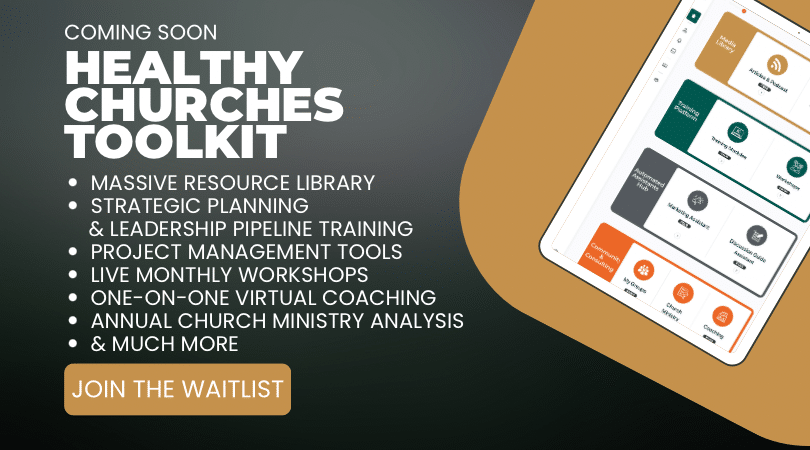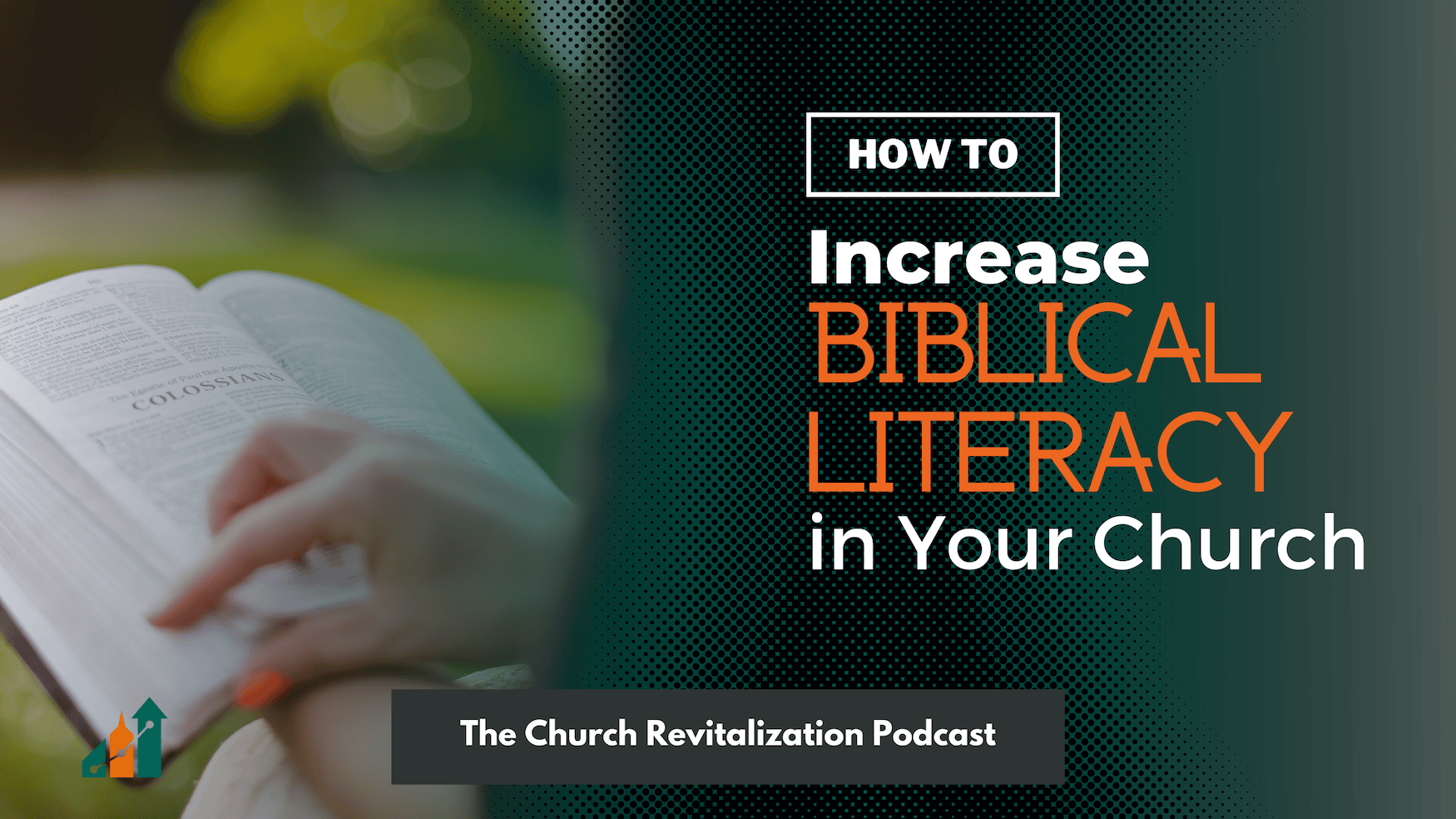The Church Revitalization Podcast – Episode 142
It’s happened to all of us. You log onto social media, and that lady who sits in the third row has posted a Bible meme. Almost too afraid to look, you take the plunge and see some of the shallowest theology possible.
Pastors spend hours every week writing sermons, preparing lessons, and making sure the church is spiritually healthy. Yet even with all of that hard work, there is still a lack of biblical literacy in most of our churches. In fact, over half of all churchgoers don’t even know what the Great Commission is!
Boosting biblical literacy in your church doesn’t need to be complicated. But if you want to see it increase, it will take some intentionality. Here are three specific steps you can take to increase biblical literacy in your church.
Subscribe below to never miss an episode.
Teach to Obey
Speaking of the Great Commission, in Matthew 28, Jesus says that we are to “teach [those we baptize] to obey” everything He has commanded. Jesus didn’t say that we are supposed to teach people to “know” everything He commanded. This might feel like a distinction without a difference, but the implication is huge.
In many of our churches, we place an emphasis on Bible knowledge more than Bible application. As a result, we have a small percentage who know a lot about the Bible (and may or may not be living it), and a large percentage who are only catching what they can from a Sunday sermon. Many people believe that Bible study is for people who want to be like a preacher, and learn a lot of Bible facts.
If, instead, we place life transformation at the forefront, it will impact the way that teach the Bible and the environments we choose to teach it. When we keep the focus on “teaching to obey,” or “teaching for transformation,” it places a renewed urgency on making sure as many people as possible are engaging in the environments necessary to learn, understand, apply Scripture.
As long as learning the Bible feels like an “extra” rather than core to transformation, people will choose to keep their biblical literacy low.
As We Teach “What,” We Need to Teach “How”
There’s an old adage that we don’t need to teach people what to think; we need to teach them how to think. This isn’t exactly true. Before someone can learn how to think, they need some foundational knowledge, too! This is why many traditions have catechisms; these are foundational truths about our faith that help us understand who God is and how we relate to Him.
But it is true that even as we teach people the foundational truths about Scripture and faith, we also need to teach people how to learn on their own. Find ways to help people peek “behind the scenes” on how you put together a lesson or a sermon. Share which tools and resources inform your process.
Even brief mentions in a sermon like, “As I was researching the Hebrew root word on BlueLetterBible.org” can make a difference. Engaged listeners will make a note, and may check out that website themselves. It’s not important to give every source and resource, as it would bog down your message. But weaving in some information will empower your folks to know how to study on their own. It will also encourage them because they’ll see that you don’t just know these deep insights, you work to discover them.
People need to learn that studying Scripture doesn’t require a seminary degree. Every person who meditates on the Word of God can be transformed by it, and they can uncover insights on their own. While studying the Bible in community should always be an aspect of our spiritual growth, investing in the Word on their own is an equally rewarding and vital aspect of growing in Christ.
Teach Through Multiple Venues
Remember that the goal is to teach to obey. Churches often get stuck in a rut because they only have one programmatic lens for teaching the Bible. When transformation is the goal, not program attendance, you can feel free to take a multi-prong approach to boosting biblical literacy.
Obviously, you’ll likely continue to offer a small group or Sunday school environment. This will serve as your primary ministry, and demand the majority of your attention. This is well and good. But have secondary ministries to supplement that small group teaching environment.
Some ideas might include putting together a weekly “Behind the Sermon” podcast or video series. This can give additional background that maybe didn’t make it into the final sermon. You can expound more on sources and tools you used to help you understand the sermon text. One church I recently worked with put together a series of “courses” that can be taken in person or online that give them foundational skills for studying the Bible and building spiritual habits. These don’t replace their groups, they supplement them.
Even pointing people to existing tools like the Bible Project Classroom can give people high quality tools to help them learn how to study the Bible on their own. You don’t need to spend thousands of dollars or hundreds of hours creating resources. Find a few that you trust, and send your folks in their direction.
You may not be able to keep every person in your church from posting shallow, Bible memes on social media. But you can boost biblical literacy in your church. Keep your focus on teaching for transformation. Let people into your process, and help them understand that studying Scripture isn’t just for seminary students. And finally, think outside of your programmatic box. Give people lots of opportunities and venues to access transformational tools and teaching.
You may be surprised at how much people rise to the occasion as they grow in their love for God’s Word and allow it to lead to transformed lives.
BONUS: Watch this episode on YouTube.


Scott Ball is the Vice President and a Lead Guide with The Malphurs Group. He lives in East Tennessee with his wife and two children. (Email Scott).

